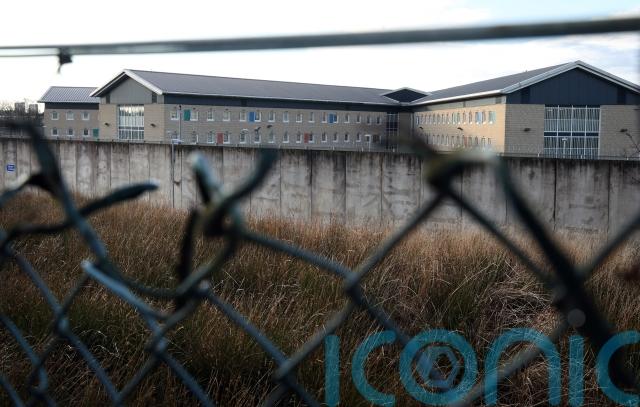
Victim support charities have raised concerns over plans for long-term prisoners to be released after serving two thirds of their sentence.
The Scottish Government has been dealing with a rising prison population with a programme of early release under way for more than 500 inmates.
Announcing the move this year, Justice Secretary Angela Constance said more was needed to impact the population over the long term but insisted that public safety would be “paramount”.
A consultation published in July showed some prisoners could be allowed out under licence after serving two thirds of their sentence – a return to the policy from before February 2016 – however, charities supporting victims have raised “grave concerns” about a lack of risk assessment.

Exclusions would apply to some terrorist offences, life sentences and extended sentences – but not sex offenders or domestic abusers – while prisoners who had been denied parole would be eligible, and victims would be notified by the victim notification scheme, which the charities described as “flawed”.
Currently, prisoners are eligible to be released under licence six months from the end of their sentence.
However, in a joint statement, Victim Support Scotland (VSS), Rape Crisis Scotland, Scottish Women’s Aid, and domestic abuse support charity Assist, have raised concerns about proposed changes to long-term prisoner release, including a lack of exclusion for sexual offences and domestic abuse.
The organisations called for the guidelines to be “strengthened” and to include a governor’s veto, after successfully getting it included as part of the Bail and Release from Custody Act last year – allowing prison bosses to have the final say if they believe there is “an immediate risk”.
A statement said: “As organisations upholding the rights of victims and witnesses, as well as women and girls affected by domestic abuse and gender-based violence, we have come together to share concerns regarding proposed changes to the release of long-term prisoners.
“Acknowledging the dangers of an overcrowded prison estate, we maintain that short-term approaches are not the answer.”
Concerns were specifically about automatic release of long-term prisoners, the impact on victim safety and confidence in the justice system.
The charities said: “There are no plans to conduct risk assessments to determine if a long-term prisoner will be released. These proposals would apply to prisoners who have been previously denied parole and would be backdated to 2016. We have grave concerns about the welfare of victims and public safety.”

The statement added: “We note with alarm that the only method by which victims would be notified in advance is via the victim notification scheme. We are aware from the independent review published in 2023 that this scheme is fundamentally flawed.
“We are extremely concerned there will be no mechanism to ensure safety planning for victims to prepare in advance of prisoner release. Organisations hear often of victims coming face-to-face with their perpetrator, having not been informed.”
It said that this created “trauma” and “genuine safety issues”.
The statement added: “Victims have often fought long and hard for justice and feel let down when the main driver for change is prison overcrowding Recent figures show a decline in trust and confidence in the justice system.
“We are concerned that this approach will exacerbate the issue of deterring victims from reporting crimes.”
It called for exclusions to be “strengthened and a Governor Veto applied”, with the public urged to contribute to a consultation which closes on Monday August 19.
The statement said: “Given victims’ recent experience with Emergency Early Release, we are concerned regarding the lack of exclusions for sexual offences and domestic abuse, and no facility for a Governor Veto.
“Victim support organisations lobbied strongly for the inclusion of a Governor’s Veto in the Bail and Release from Custody Act – a further point at which to check a prisoner’s eligibility for release and the prospect of them going on to cause further harm.”
A Scottish Government spokesperson said: “We are taking a range of actions to deal with the pressures of a high and complex prison population, including consulting on release arrangements for long-term prisoners.
“Under the proposals in the consultation, those released would be subject to licence conditions, supervision, and ultimately recall to custody. Public safety will be paramount. As at present, the individuals would be subject to individualised risk assessment ahead of release, with licence conditions reflecting the conclusions of that assessment and being set on the recommendations of the Parole Board.
“Victims would continue to have the right to receive certain information about a prisoner, including their release dates, and to make representations under the victim notification scheme.
“We welcome all views on the proposals in the consultation, and any measures taken forward in this area would be introduced through legislation, requiring debate and the approval of Parliament.”
Subscribe or register today to discover more from DonegalLive.ie
Buy the e-paper of the Donegal Democrat, Donegal People's Press, Donegal Post and Inish Times here for instant access to Donegal's premier news titles.
Keep up with the latest news from Donegal with our daily newsletter featuring the most important stories of the day delivered to your inbox every evening at 5pm.